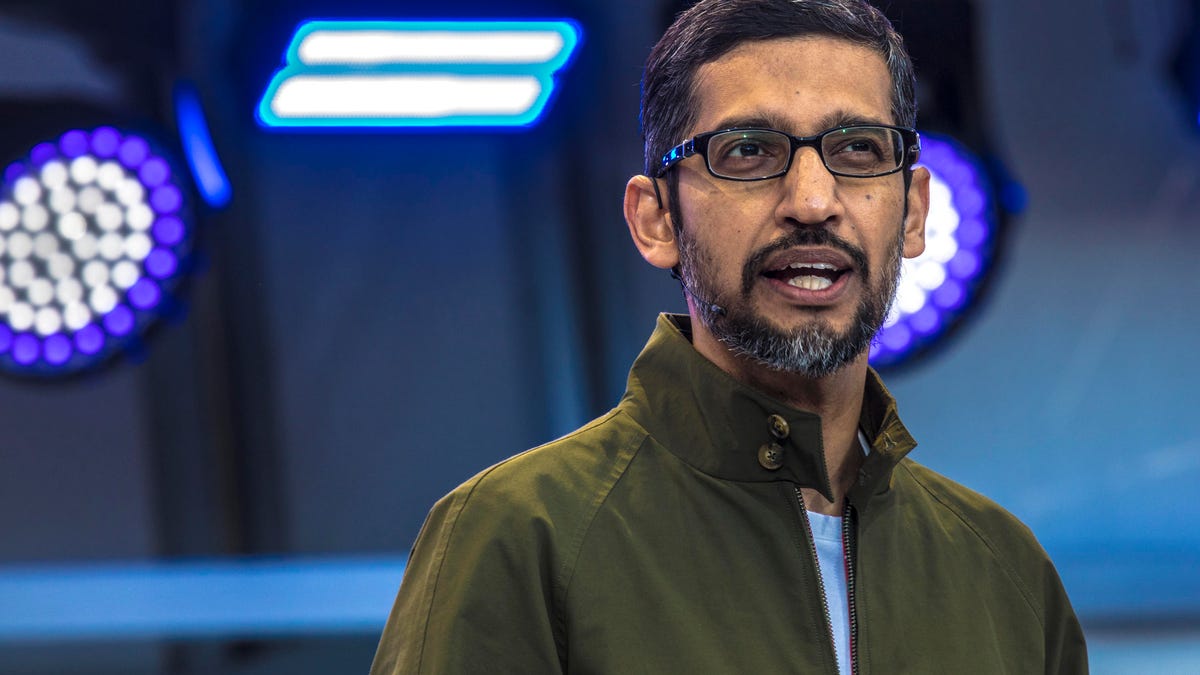Congressman wants to know if he's being tracked by Google via his phone
During a Capitol Hill hearing, US Rep. Ted Poe presses Google CEO Sundar Pichai on the question. Pichai doesn't really answer.

Google CEO Sundar Pichai at the company's 2018 I/O event.
Is Google's location tracking so precise that it can know if someone moved from one side of a room to another?
That's a question US Rep. Ted Poe, a Republican from Texas, repeatedly asked Google CEO Sundar Pichai during one of the most pointed exchanges of Pichai's congressional hearing Tuesday. But by using an iPhone, instead of a Google Android phone, as an example, Poe left himself open to Pichai dodging the question.
"I have an iPhone, and if I move from here and go over there and sit with my Democrat friends, which would make them real nervous, does Google track my movement?" Poe asked, while holding up an Apple phone. "Does Google through this phone know that I have moved here and moved over to the left."
Pichai demurred, saying location services weren't default on the iPhone and noting that there may be a Google service Poe opted into using. Unlike Android phones, iPhones don't use Google services as default and require users to download the apps.
Poe's questioning of Pichai occurred during a House Judiciary Committee hearing in Washington, in which the leader of the world's largest search engine answered a broad range of questions about his company's data policies, alleged anti-conservative bias and reported plans to bring a censored search engine to China.
"It's not a trick question," Poe continued, his voice rising. "You know you make $100 million a year, you ought to be able to answer that question."
Pichai's total compensation over the past three years was $1.3 million, $200 million and $101 million, respectively, according to Google's public filings.
Pichai, appearing nervous, said: "I wouldn't be able to answer without knowing more details."
Poe asked him a third time for a yes or no answer, adding: "I'm shocked you don't know. I think Google obviously does."
Google uses GPS, Wi-Fi and cell tower data to track a person's location. The company says it uses GPS to locate a person within 20 meters (65 feet) and cell tower data to locate someone within a few thousand meters. That information can be combined to pinpoint even more accurate location data.

